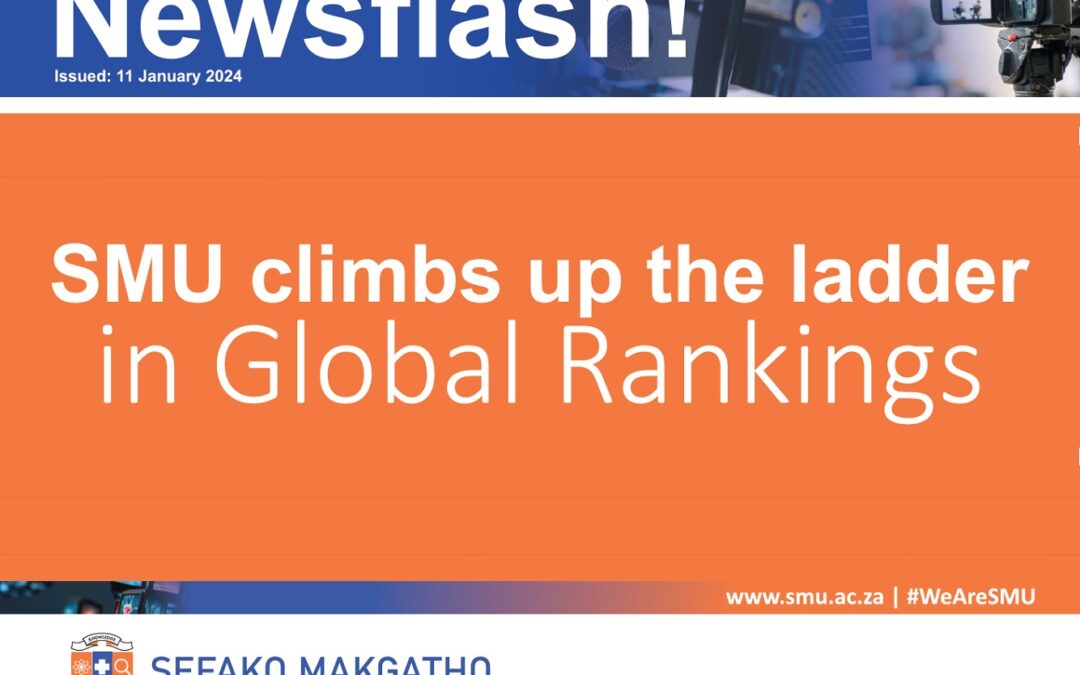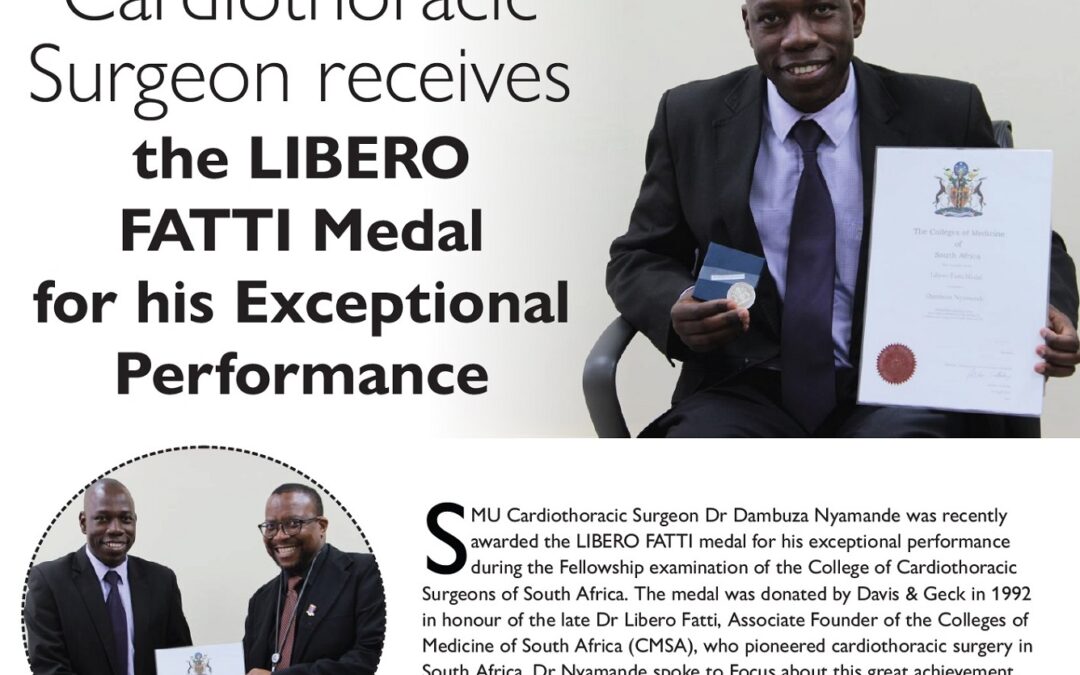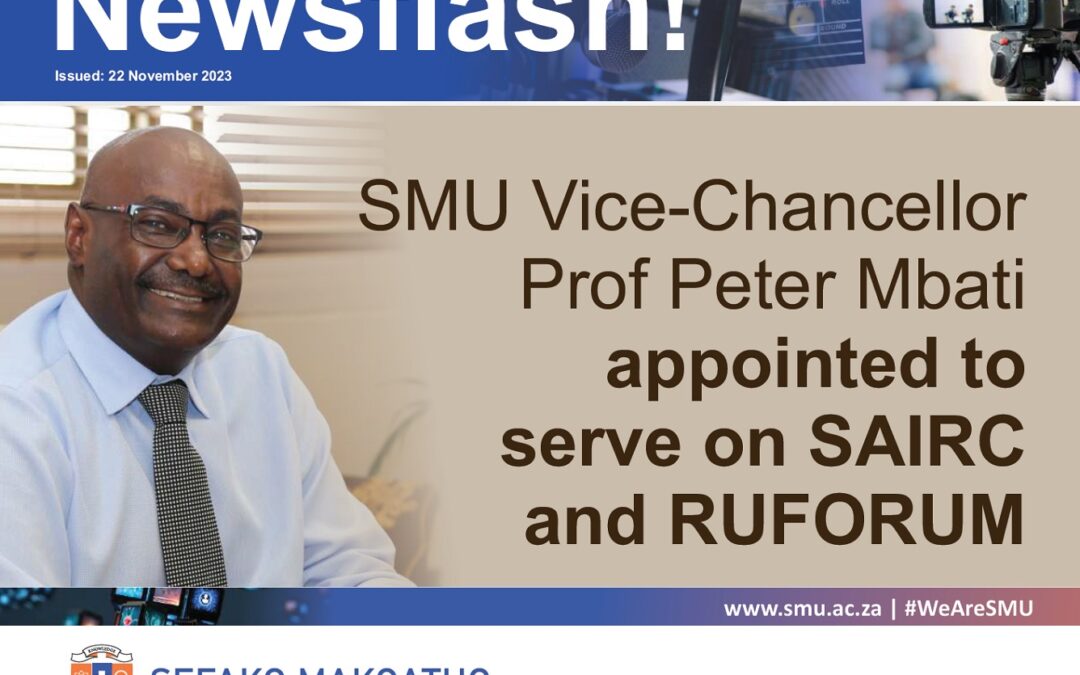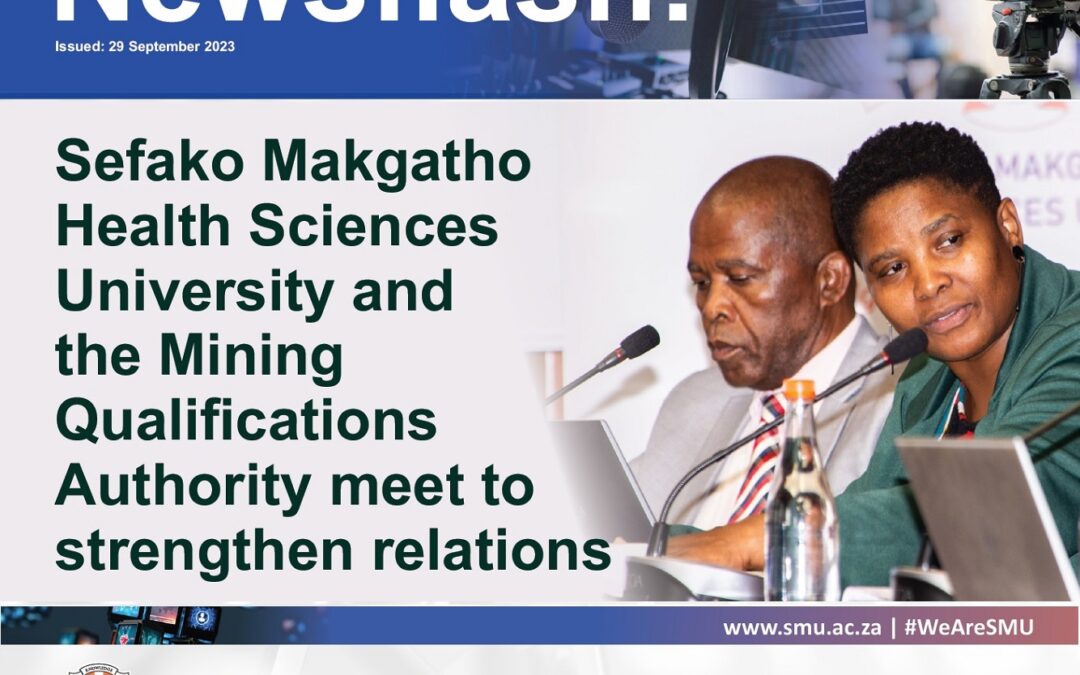
by Lorato | Jan 15, 2024 | Accolades and Achievements, All News, SMU Media, Student Media
About the University Ranking by Academic Performance (URAP)
The University Ranking by Academic Performance (URAP) is a global ranking system that assesses and ranks higher education institutions (HEIs) based on academic quality and performance. URAP aims to assist universities in identifying areas for improvement in specific academic performance indicators. The system is continuously evolving, with the rankings being regularly updated based on continuous research and feedback from different stakeholders.
Methodology
The Uni Ranking by Academic Performance (URAP) methodology involves the following key steps:
• Data Collection
URAP gathers data from Web of Science and InCites, focusing on higher education institutions (HEIs) with the highest number of publications. Initial consideration was given to 3,000 Higher Education Institutions (HEIs).
• Data Processing
After data collection, the information undergoes pre-processing and data-cleaning to ensure reliability. Statistical analysis is performed to address skewed distributions in the bibliometric data.
• Ranking Indicators
URAP uses six academic performance indicators to evaluate HEIs. These indicators include the following: article (current scientific productivity), citation (research impact), total document (scientific productivity), article impact total (research quality), citation impact total (research quality), and international collaboration (international acceptance).
• Scoring
The total score of 600 is distributed among the indicators based on a set of weighting scores assigned through the Delphi system. Each indicator receives a percentage of the total score, with weights assigned as follows: Article (21%), Total Document (10%), Citation (21%), Article Impact Total (18%), Citation Impact Total (15%), and International Collaboration (15%).
• Objective and Coverage
The indicators serve objectives such as measuring scientific productivity, research impact, research quality and international acceptance. The coverage of the data spans specific years, providing a snapshot of the academic performance during those periods.
• Expert Involvement
The Delphi system involves a group of experts who assign weighting scores to the indicators, contributing to the transparency and robustness of the ranking system.
SMUs performance
Sefako Makgatho Health Sciences University (SMU) has exhibited commendable progress in the URAP rankings, showcasing a notable improvement in the 2023/2024 academic year compared to the previous year. In the 2022/2023 rankings, SMU was ranked at number 19 in South Africa, with a global rank of 3041. However, in the subsequent academic year, 2023/2024, SMU has significantly advanced, securing the 16th position in South Africa, accompanied by a substantially improved global rank of 2229 and an overall score of 157.97.
In his remarks, Prof. Marvey, Director for Institutional Planning indicated that this noteworthy progress indicates SMU’s dedication to academic excellence and its successful efforts to enhance its standing globally.
Newsflash - SMU climbs up the ladder in Global Rankings
File size: 738.96 KB
Created: 15-01-2024
Updated: 15-01-2024
Hits: 102

by Lorato | Nov 30, 2023 | Accolades and Achievements, All News, SMU Media, Student Media
SMU Cardiothoracic Surgeon Dr Dambuza Nyamande was recently awarded the LIBERO FATTI medal for his exceptional performance during the Fellowship examination of the College of Cardiothoracic Surgeons of South Africa. The medal was donated by Davis & Geck in 1992 in honour of the late Dr Libero Fatti, Associate Founder of the Colleges of Medicine of South Africa (CMSA), who pioneered cardiothoracic surgery in South Africa. Dr Nyamande spoke to Focus about this great achievement.

by Lorato | Nov 23, 2023 | Accolades and Achievements, All News, SMU Media, Student Media
Sefako Makgatho Health Sciences University congratulates its Vice-Chancellor Professor Peter Mbati for being appointed in 2 important bodies in the international higher education and research spaces namely: Regional Universities Forum for Capacity Building in Agriculture (RUFORUM) and Strathmore Academy for International Research Collaboration (SAIRC).
Prof Mbati will serve on the Audit Committee of RUFORUM for a period of 3 years effective from October 2023 until October 2026. Some of the responsibilities for Audit Committee members include:
- Providing oversight on Audit operations of the RUFORUM Secretariat;
- Reviewing annual audit reports of the Secretariat, prior to submission to the Board;
- Advising the Board on the RUFORUM’s Audit management procedures;
- Considering management’s reactions and comments on RUFORUM Audit reports before they are presented to the Board Executive Committee and the full Board by the Executive Secretary for confirmation.
At SAIRC, Prof Mbati will serve on the Research Advisory Board with effect from December 2023 until 2026 and his key role will be to advise the Office of the President and the Board of Directors with respect to the full range of Academy activity.
- Additional responsibilities will also include reviewing and making recommendations regarding the Academy’s policies and programs concerning the Research Administration, the IRB, Partnerships, research funding, research collaborations, research facilities, research communications, and other matters within the purview of the Academy’s research enterprise;
- He will also advise and guide the Academy on opportunities, challenges, and strategies related to all research, with a particular emphasis on research conducted in the CREs established by the Academy as well as providing advice to the office of the president regarding the emergence of new and existing initiatives that will energize Academy’s research culture and enhance competitiveness for sponsored funding, along with maximizing societal impacts of multidisciplinary research, scholarship, creative works, and entrepreneurial activities.
These appointments have come at a crucial time when Sefako Makgatho Health Sciences University is escalating its efforts to foster strategic partnerships with several institutions and bodies in the African Continent and the world in line with its 2024-2028 strategic plan.

by Lorato | Oct 16, 2023 | All News, SMU Media, Student Media
Sefako Makgatho Health Sciences University (SMU) hosted a Public Lecture delivered by the University of Johannesburg Vice Chancellor and Principal, Prof. Letlhokwa Mpedi, on 12 October 2023 with the topic: Exploring the ethics and legalities of artificial reproductive technology through an African lens.
This is part of a series of lectures hosted by SMU Vice-Chancellor Prof. Peter Mbati with the understanding that a university has a critical role to play in the creation of a platform for dialogue and should get involved in public discourse, particularly, as it relates to pertinent issues in society.
In his welcoming address, SMU Vice Chancellor, Prof. Mbati underlined the significance of the lecture in the context of accelerated technological developments on the continent, further stating that this lecture is, indeed, timely. Mbati described Prof Mpedi as a distinguished NRF rated scholar with a B rating who enjoys immense international recognition by his peers and further explained that he has published widely on social security and labour law.
Speaking during the lecture, Prof Mpedi mentioned that the issue of Artificial Reproductive Technology (ART), is something he has been writing and researching about for a number of years and that he is excited by the legalities and ethical considerations behind the technology.
“In recent years, there has been remarkable progress in the field of reproductive technologies. These technologies include medical procedures used to address infertility”, Mpedi explained. He added that in the African context, research suggested that the constantly and rapidly changing lifestyle is fundamentally impacting fertility.
“The African continent has a higher prevalence of STIs and postpartum and post-abortion infections which contributes to both male and female infertility”, Mpedi said.
Mpedi used the opportunity to speak about three key areas impacted by technology in the artificial reproductive space such as artificial wombs, genes editing and embryo donation/adoption adding that the use of these technologies will require laws to be reformed. “Medical technologies advance at a rapid pace while the laws take forever to catch up”, he emphasized. Mpedi also called for sound ethical frameworks that will serve as a basis for regulation and challenged the legal fraternity to keep up with developments in the space and respond accordingly.
What became apparent from the lecture is the fact that technological developments are critical to the overall development of society. Mpedi, however, cautioned that whilst it is important to embrace technology, we should, equally, be mindful that it also ushers us into the world of the unknown, leaving us with many questions than answers, particularly with regard to the adoption of artificial reproductive technology (ATR).
The lecture provided a platform for participants to engage on ATR, weaving together, amongst others, religious, economic, ethical and cultural considerations. What clearly emerged from the deliberations is the need for collaborative efforts among institutions to consider the challenges and opportunities presented by Artificial Reproductive Technology.
From the VCs Desk - University of Johannesburg VC and Principal Prof Letlhokwa Mpedi delivered a captivating lecture at SMU
File size: 1.15 MB
Created: 16-10-2023
Updated: 16-10-2023
Hits: 132

by Lorato | Sep 29, 2023 | All News, SMU Media, Student Media
Sefako Makgatho Health Sciences University (SMU) through the Office of the Vice-Chancellor Prof Peter Mbati hosted a delegation of the Mining Qualifications Authority (MQA) yesterday 28 September 2023. The MQA delegation was led by their Chief Executive Officer Dr Thabo Mashongoane. The meeting took place as part of the University’s efforts to strengthen partnerships with various institutions in support of the University’s academic core business. SMU and MQA presented both their strategic plans emphasizing the need to collaborate more on research, funding of more students and community development projects. SMU further used the occasion to highlight issues relating to curriculum gaps and Prof Mbati mentioned that these curriculum gaps might be of interest to the MQA in terms of SMU’s New Business Model. The session further gave SMU and MQA the opportunity to outline their particular strategies that will contribute to the skills development of SMU students and lecturers, while further strengthening the partnership. MQA currently funds some SMU students and it is envisaged that through the strengthening of relations, more students will in future benefit from the partnership. It was resolved that a workshop will be held in the near future to map out in more detail collaborative projects between SMU and MQA, which will then be reduced into a memorandum of understanding.

by Lorato | Sep 27, 2023 | Accolades and Achievements, All News, Student Media
Dr Refilwe Mokgatlha was born in Lehurutshe and raised in Gopane village in the North-West Province. She went to Mmabatho High School, where she was in a boarding school for the entire duration of her high school years until the completion of matric. “As a young girl, I enjoyed being there for others and assisting them. I was also a bookworm, and in high school through the assistance of our guidance teacher at the time, I knew I wanted to be in health care. There were three professions in health care that I liked; in standards 9 and 10 (currently grades 11 and 12) we were required to accompany working people in the fields we were interested in for some time. Dentistry became my first love”, says Dr Mokgatlha.
Dr. Mokgatlha holds various qualifications at undergraduate and post- graduate levels. She holds a Bachelor of Dental Sciences Degree (BDS, University of Witwatersrand); a Post-graduate Diploma in Endodontics (PgDipDent, University of Pretoria); Master of Dental Science in Prosthodontics (MDS) and a Master of Dentistry in Prosthodontics (MDent, Prostho) attained at Sefako Makgatho Health Sciences University – the first black female to achieve this qualification at SMU. She is a member of the International Team of Implantology (ITI) and the Academy of Prosthodontics South Africa (APSA) and is currently a part-time lecturer at SMU. Her key responsibilities involve lecturing the undergraduate students (Second, Third and Fourth year BDS students), teaching pre-clinical techniques and overall clinical supervision.
“I am not where I would want to be, but I believe I am where I am supposed to be now, according to the divine plan and guidance, there is still more that I would like to accomplish, a mountain peak of a mountain is only the bottom of the next. I will do a PhD in the future”, Dr. Mokgatlha expressed.
Her journey at SMU started in 2010 when she was working as a sessional Dentist in the Department of Prosthodontics. In 2014, she registered for a Master of Dental Science (MDS), as she desired to specialise in Prosthodontics at a later stage. The earlier years were a challenge to her, especially during her time as a sessional Dentist, a Developmental Dentist and an MDS student.
Dr. Mokgatlha believes that, for any academic department to achieve what is required of it, it is important to have sufficient support for the undergraduates, postgraduates, and the rest of the clinical staff to adequately teach, guide and mentor them in the field. In this way, the dentists in the department will be motivated to develop themselves further in the same field of study. This directly speaks to the importance of some degree of stability that can be brought about by the right amount of human resources especially people who are passionate about this field of study, teaching, and learning, as well as those who have an appreciation of teamwork.
“Success is very personal and relative. I believe everyone has their meaning of success, a meaning that gives them a sense of having accomplished something important based on their values, virtues as well and desires. One then should have the perseverance and resilience to push to accomplish, that which is meaningful to them, and to reach those goals we set for ourselves. We should continuously be willing to learn, to fail (if we do) forward, to take each challenge as a steppingstone and keep moving”, Dr. Mokgatlha remarked.






